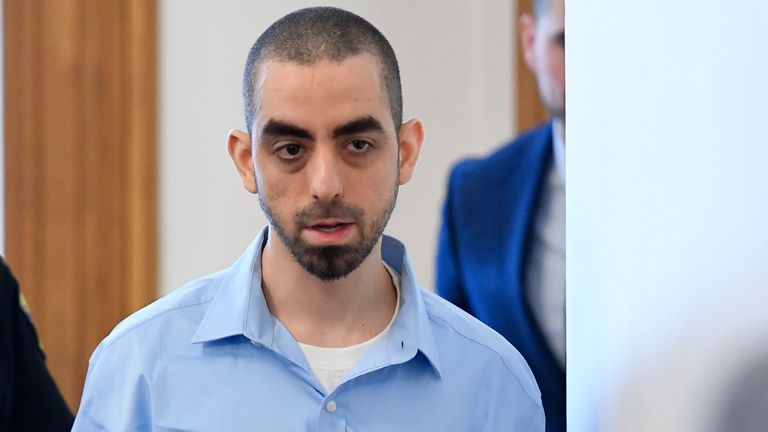
Salman Rushdie’s Attacker Sentenced: A Tragic Chapter Ends in Justice
It’s been a long and painful journey since that horrifying day in August 2022, when celebrated author Sir Salman Rushdie was attacked in broad daylight on a public stage in New York. Today, that chapter has reached a form of closure. The man behind the brutal assault, 27-year-old Hadi Matar, has been sentenced to 25 years in prison for attempted murder. The attack shocked the world and served as a dark reminder of the threats that still surround free expression.
Rushdie, known globally for his literary brilliance and fearless voice, was preparing to speak at a literary event when Matar charged the stage and stabbed him multiple times — in the face, neck, torso, and left hand. The injuries were devastating. The novelist lost sight in his right eye, suffered liver and nerve damage, and was left with a paralyzed hand. During the trial, Rushdie recounted the traumatic experience, describing the moment he believed he was dying. "I became aware of a great quantity of blood I was lying in," he said. "I was in pain from my eye and hand, and it occurred to me quite clearly I was dying."
Matar didn’t just stop with Rushdie. He also injured Henry Reese, the event moderator, leading to an additional assault charge. For that, he received another seven years, which will run concurrently. In court, Matar gave a defiant and chilling statement, claiming Rushdie was a “hypocrite” and a “bully,” reaffirming his lack of remorse.
Also Read:- Alcaraz Battles Musetti in a Tense Rome Semifinal Thriller
- Archer Aviation Soars on Fresh Optimism—But Is the Flight Sustainable?
Prosecutors revealed that Matar had been motivated by a fatwa — a death edict — issued in 1989 by Iran’s then-leader Ayatollah Khomeini over Rushdie’s controversial novel The Satanic Verses . Although Matar admitted to having read only a few pages of the book, the influence of radical ideology seemed to be enough to push him toward violence. Prosecutors also believe he was inspired by a 2006 Hezbollah speech supporting that original fatwa.
This wasn’t just an attack on one man. As the Chautauqua County District Attorney put it, it was an attack “on a community,” on the very idea of free speech. Rushdie, who had been living more openly in recent years after decades in hiding, has shown remarkable resilience since the attack. He documented his road to recovery in his memoir Knife , published in 2024.
While Matar’s sentencing offers a sense of justice, the scars left behind — physical, emotional, and cultural — remain. This case is a stark reminder of the cost of courage, the danger that still exists for voices of dissent, and the critical importance of defending the freedom to speak and write without fear.
Salman Rushdie may never regain what was lost on that stage, but he stands as a symbol of resilience — a writer who refused to be silenced, even in the face of violence.
Read More:

0 Comments